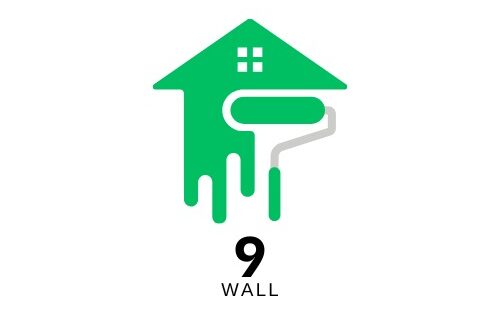Key Takeaways
- Lemon Laws protect consumers from defective vehicles by requiring manufacturers to repair, replace, or refund faulty cars, including both new and used vehicles in some cases.
- Thorough documentation of repair attempts, warranties, and communications is essential for a successful Lemon Law claim and helps streamline the legal process.
- Engaging a skilled Lemon Law attorney can significantly improve the outcome of your claim by offering expert guidance, negotiating settlements, and navigating arbitration or court proceedings if necessary.
Understanding Lemon Laws
Lemon Laws play a critical role in safeguarding consumers who find themselves with vehicles that fail to meet established quality and performance benchmarks. These laws demand that manufacturers take responsibility, be it through repair, replacement, or, in some cases, refund, for vehicles that are consistently unreliable. A widespread myth circulating is that Lemon Laws cater only to new cars, which is not entirely accurate. In various scenarios, these laws extend their protection to used vehicles as well, providing a comprehensive shield for consumers across different purchase situations. This flexibility makes Lemon Laws an essential component of automotive consumer rights, ensuring buyers are not left helpless with defective vehicles. In most cases, seeking support from a knowledgeable lemon law attorney in Fresno CA can help streamline the process, offering expert insight into the intricacies of your unique case.
A Lemon Law attorney in Fresno, CA, specializes in helping consumers who are dealing with defective vehicles by guiding them through the complexities of Lemon Law claims. With in-depth knowledge of both state and federal regulations, these attorneys ensure that your rights are protected and work to secure a favorable resolution, whether through repair, replacement, or a refund. Hiring a skilled Lemon Law attorney in Fresno can significantly increase the chances of a successful claim by providing expert advice, handling negotiations with manufacturers, and managing potential legal proceedings.
Determine if You Have a Lemon
Recognizing a lemon vehicle is about noticing unresolvable issues despite multiple repair attempts. Typically, this includes chronic engine problems, persistent transmission failures, or defects impacting safety. For a successful Lemon Law claim, meticulous record-keeping of all repair activities, warranty claims, and communication with the manufacturer is crucial. Maintaining this documentation ensures every detail of the vehicle’s problematic history is captured. However, the complexity involved in identifying and proving a lemon can be daunting.
Gather Necessary Documents
Document collection is a foundational step in the Lemon Law claim process. Key documents include repair logs evidencing attempts at resolution, the initial purchase agreement documenting the transaction, detailed warranty stipulations, and all communications with the car manufacturer. Having a well-organized documentation system not only aids in presenting a credible claim but also empowers the attorney to craft a strategy tailored to your circumstances. Arrange documents by date and type, ensuring a chronological and thematic structure that simplifies access and review.
Consult with a Lemon Law Attorney
Engaging with a seasoned Lemon Law attorney can be pivotal in influencing the outcome of your claim. Expert attorneys offer comprehensive assistance, from case evaluation to deciphering complex legal frameworks inherent in Lemon Law claims, ensuring your consumer rights are protected throughout the process. Selecting the right attorney involves considering their track record in handling similar cases, client testimonials, and their approach towards maximizing settlements. Professional legal advice not only smooths the claim process but frequently leads to more favorable settlements, making their involvement a valuable investment.
Initiate the Claim Process
Starting your claim involves filing a formal complaint with the manufacturer and setting the official proceedings in motion. This requires submitting a comprehensive dossier of all gathered documents, articulating your dissatisfaction and your resolution preferences. Patience is critical, as manufacturers may take time to assess the claim, necessitating a proactive yet patient approach to follow-ups. Understanding these procedures is essential, as having realistic expectations about timelines aids in managing the process effectively.
Negotiate a Resolution
Upon assessment of your claim, the manufacturer might propose multiple resolutions, including further repairs, vehicle replacement, or a monetary refund. The negotiation phase is where strategic discussion plays a crucial role. It’s vital to critically evaluate each proposal, balancing its benefits against potential drawbacks. Expertise from your attorney is invaluable in discerning when to accept an offer or when further negotiation might yield better results, ensuring that settlements align with your interests.
Prepare for Arbitration or Court
If negotiations stall, arbitration or court becomes necessary. Arbitration provides an alternative dispute resolution process that’s often quicker and less formal than court proceedings. It’s essential to deeply understand the arbitration process and its implications. Conversely, should court proceedings ensue, familiarize yourself with legal steps and proceedings, which is a crucial preparation guided by resources such as the Federal Trade Commission’s guide to Lemon Laws.
Post-Claim Considerations
After claim resolution, several considerations come into play, including understanding amendments to your vehicle’s history report and how this information might affect future resale or trade scenarios. Stay updated on Lemon Law developments by reviewing relevant articles like those from Forbes on Lemon Law, which discusses legislative changes and their implications. This awareness ensures you remain informed and prepared for any future dealings involving your vehicle.
Conclusion
In conclusion, filing a Lemon Law claim is an important process for consumers seeking redress for defective vehicles that fail to meet performance or safety standards. Lemon Laws provide vital protection for both new and used car buyers, ensuring that manufacturers are held accountable for unresolvable defects that persist despite multiple repair attempts. To successfully navigate the claim process, it is essential to meticulously document the vehicle’s issues, maintain a comprehensive log of all repair attempts and communications, and seek the assistance of an experienced Lemon Law attorney. With their expertise, individuals can better understand the legal complexities, negotiate fair settlements, and maximize their chances of receiving a satisfactory resolution.
The claim process, from gathering necessary documents to potentially entering arbitration or court, requires patience, organization, and a proactive approach. Consumers should understand the potential outcomes of their claim—whether repair, replacement, or refund—and be prepared to negotiate effectively with the manufacturer. In cases where resolution isn’t achieved through negotiation, understanding arbitration and court procedures becomes crucial. Post-resolution, staying informed about the impact of a Lemon Law claim on vehicle resale and future legal developments is key to ensuring long-term consumer protection. With proper guidance and preparation, Lemon Laws offer consumers an important tool for holding manufacturers accountable and safeguarding their rights.






